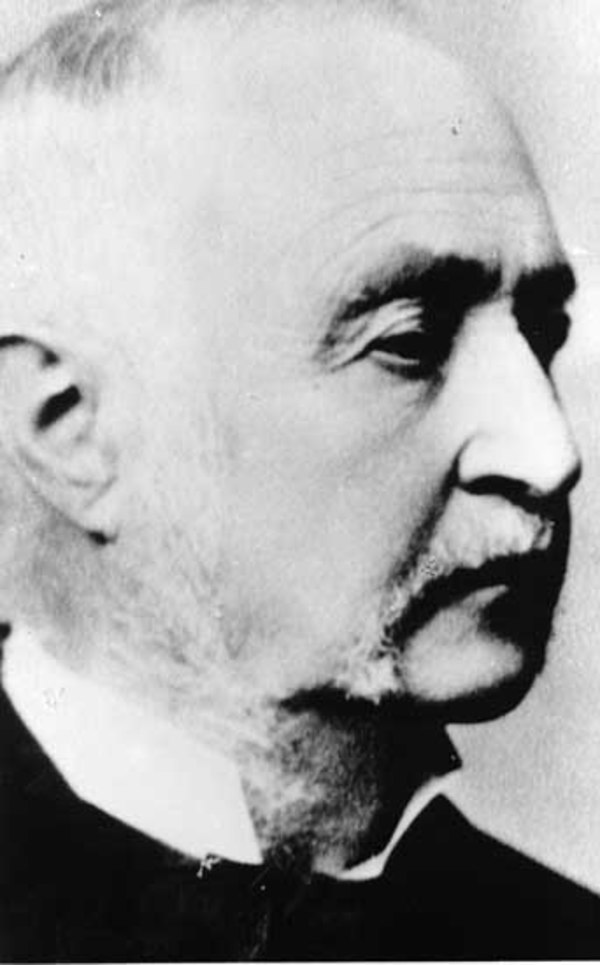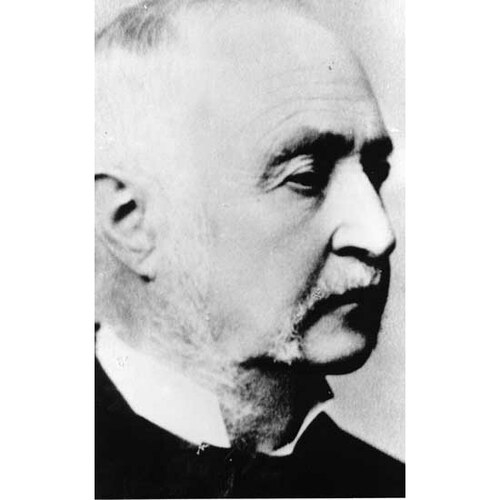
Source: Link
HOLBROOK, HENRY, merchant, canner, and politician; b. 11 July 1820 in Northwich, England, son of Samuel Holbrook and Elizabeth —; unmarried, he had one daughter and one son; d. 11 May 1902 at Talbot House in Parkgate, near Neston, England.
Born of a merchant family in Cheshire, Henry Holbrook attended grammar school in Witton (Birmingham) before entering business in Liverpool. He was a contractor in the Crimea during the war there and subsequently lived in Odessa (Ukraine). At the beginning of the Fraser gold-rush in 1858, he came to Victoria, and the next year, when the capital and chief port for the mainland colony of British Columbia was sited at New Westminster, he moved there. He bought lots, rented waterfront, opened a store, and developed wharves.
Holbrook’s commitment to the city drew him into politics. He became embroiled in its battles with James Douglas*, who was governor of both British Columbia and Vancouver Island but was a champion of the island. For example, in 1859 and 1860 Holbrook hosted meetings at his store which generated petitions to Britain for a resident governor and representative government. Through the 1860s he served as an alderman, and he was president of the local council (mayor) for several terms. In elections to the British Columbia Legislative Council in 1864 he lost narrowly in New Westminster District but won the adjacent riding of Douglas and Lillooet District. The council’s journals for the session of January–April 1866 list him as an appointed member for Douglas and Lillooet. On 27 September he ran for election in Lillooet but was defeated by Edward Stamp*.
Holbrook opposed the union of the two colonies, which occurred on 19 Nov. 1866, and indeed his commerce suffered under the new arrangement. Businessmen from Victoria, which had previously been a free port, dumped their goods on the mainland market. Furthermore in 1868 Victoria’s partisans on the Legislative Council succeeded in having the capital removed to their city.
When discussions of confederation with Canada began, Holbrook favoured the project, and in September 1868 he attended the Yale Convention, which advocated the measure. Governor Frederick Seymour* appointed him to the Legislative Council of the united colony in time for the session opening on 17 December, and thus apparently strengthened the council’s pro-confederation leanings. Holbrook subsequently developed doubts when the matter became an immediate issue. He voiced New Westminster’s fear that Canada might neglect the mainland as he believed the British government had done after the union with Vancouver Island. By 1870 Holbrook was once more an advocate of confederation. It was now, he said, “a question of certain terms.” Like other politicians, he looked forward to the expected growth in population and the railway, but he called for improvements in the terms. For example, the tariff should be arranged so that local farming interests could have their rights protected, and English goods should enter the dominion duty-free.
What distinguishes Holbrook’s speeches in the Legislative Council on confederation, however, is his advocacy of the interests of British Columbia’s native peoples. He commended the “salmon laws of Canada,” which would prevent salmon traps from being set at the mouth of the Fraser River, cutting off Indian food supplies and self-support. The prospect of monopolies on cranberries, “a source of living to many hundreds of Indians,” worried him. The Indians, like the white farmers, “should be secured the same protection that they have under our own Government.” The adult population of the colony was 10,000 whites and 40,000 natives, he estimated, “and these Indians ought not to be ignored.” On 22 March 1870 he gave notice of a motion “to show them they are not forgotten, and they may go on with settlements and improvements in safety.” The resolution lost, twenty votes to one.
Holbrook did not take time to brood on this defeat. By April 1870 he was off to Ottawa as New Westminster’s unofficial delegate to discuss the terms of union. In May he spoke to Canadian parliamentarians and advocated a Fraser valley route for the transcontinental railway and a terminus in New Westminster. This speech alerted Ottawa negotiators to the existence of mainland and island competitors for the route. No record exists of any discussions he had about the native people. The final terms of union were as vague on Indian policy as they were on railway routes.
Back home in 1871, Holbrook was soon caught up with local concerns. In 1874 he and James Cunningham took over the cannery at Sapperton (New Westminster) that had belonged to Edward Stamp. Employing the skills of his son Thomas Ovens, a machinist who had arrived in 1871, and using his English sister’s money, he developed the business. A prize for canned salmon at the 1876 Philadelphia Centennial International Exhibition rewarded these efforts. His partnership with Cunningham was terminated in 1877. Holbrook promoted the British Columbia fisheries by serving as chairman of the salmon canners’ association, working on development of a salmon hatchery, and pioneering the packing of herring at Burrard Inlet.
Holbrook’s political activity continued as well. In 1871 he had been acclaimed to the provincial legislature for New Westminster City. He received the portfolio of chief commissioner of land and works in the cabinet of John Foster McCreight* but gave it up for the presidency of the Executive Council. Although this was an important position, it did not carry the same possibilities for patronage. Following McCreight’s resignation in December 1872, Holbrook became a leader of the opposition to Premier Amor De Cosmos*, whose power-base was Victoria. Holbrook championed New Westminster and the Fraser valley in the ongoing battle for the railway route. He spoke out against complaining to Britain about the slow-down in railway work by the federal Liberal government of Alexander Mackenzie*, and he opposed talk of separation from Canada [see George Anthony Walkem].
During the provincial election campaign of 1875, Holbrook condemned Victoria interests for frightening residents of New Westminster into thinking that unless they voted for a railway terminus at Victoria and separation from Canada they would get no railway at all. He again advocated fair treatment for Indians, a subject on which his opponents were silent. When the votes were counted, he had lost. His defeat is attributable not only to his opinions but also to other factors including his failure to bring patronage to his constituency.
The economic depression, the long wait for railway development, and the costs of legal cases connected with his business tired and sickened Holbrook. In 1878 a term as mayor lifted his spirits somewhat, but by 1880 he was on his way to England for his health. While there, he inherited family property, including Talbot House. Although he spent the rest of his life there, he continued to take an interest in British Columbia. On receiving news of his death in 1902, New Westminster lowered its flags to half-mast in recognition of his contribution to the community.
Henry Holbrook is the author of British Columbia gold mines; a paper read before the Liverpool Geological Association . . . , published at Liverpool in 1884.
BCARS, Acc. 90-017; GR 1372, F 67/116; F 195/14; F 418/28; F 508/2; F 778/3, 8, 14, 25; F 920/46; F 923/10; F 934/9–10. Cheshire Record Office (Chester, Eng.), WR 43 (reg. of wills proved in Chester Dist. Probate Registry, 1902), 24 July 1902. NA, MG 29, D61, 26, Holbrook to Morgan, 8 Nov. 1896. British Colonist (Victoria), April 1859–July 1860. British Columbian, February 1861–February 1869, 22 March 1899, 12 May 1902. Chester Chronicle and Cheshire and North Wales Advertiser, 17, 24 May 1902. Daily Colonist (Victoria), 31 July 1860–November 1878; 31 May, 25 Dec. 1884; 22 March 1885; 15 May 1902. Mainland Guardian (New Westminster, B.C.), September 1869–24 May 1879, 31 May 1884. Times (Ottawa), 10–11 May 1870. B.C., Legislative Assembly, Journals, 1872; Sessional papers, voters’ lists, New Westminster, 1881–83. R. E. Cail, Land, man and the law: the disposal of crown lands in British Columbia, 1871–1913 (Vancouver, 1974). Fraser port: freightway to the Pacific, 1858–1985, ed. Jacqueline Gresko and Richard Howard (Victoria, 1986). J. S. Helmcken, The reminiscences of Doctor John Sebastian Helmcken, ed. Dorothy Blakey Smith, intro. W. K. Lamb ([Vancouver], 1975). Journals of colonial legislatures of Vancouver Island and B.C. (Hendrickson), vols.4–5. M. L. McDonald, “New Westminster, 1859–1871” (ma thesis, Univ. of B.C., Vancouver, 1947). Scholefield and Howay, British Columbia.
Cite This Article
Jacqueline Gresko, “HOLBROOK, HENRY,” in Dictionary of Canadian Biography, vol. 13, University of Toronto/Université Laval, 2003–, accessed April 6, 2025, https://www.biographi.ca/en/bio/holbrook_henry_13E.html.
The citation above shows the format for footnotes and endnotes according to the Chicago manual of style (16th edition). Information to be used in other citation formats:
| Permalink: | https://www.biographi.ca/en/bio/holbrook_henry_13E.html |
| Author of Article: | Jacqueline Gresko |
| Title of Article: | HOLBROOK, HENRY |
| Publication Name: | Dictionary of Canadian Biography, vol. 13 |
| Publisher: | University of Toronto/Université Laval |
| Year of revision: | 1994 |
| Access Date: | April 6, 2025 |



